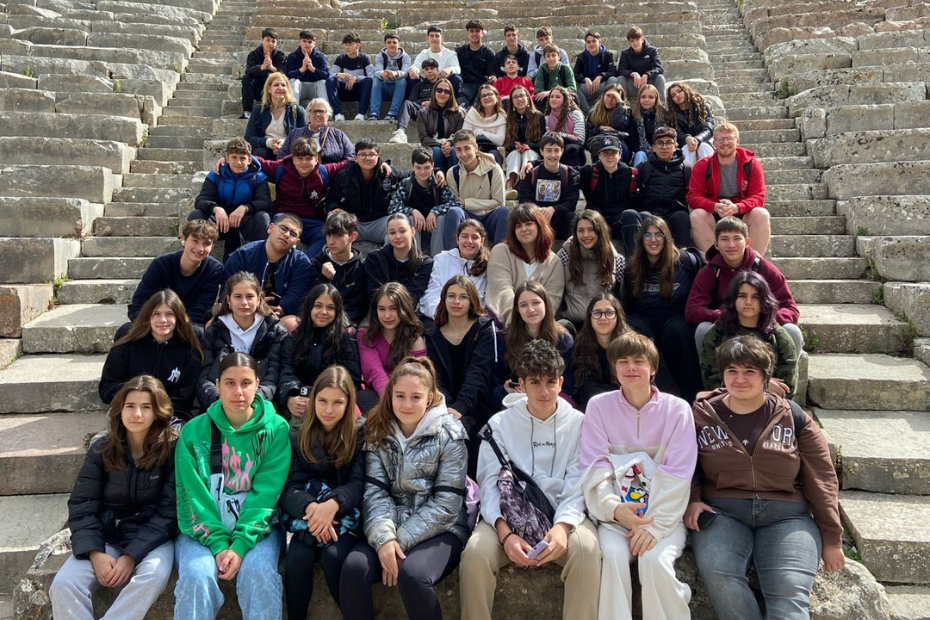‘Development of the intrinsic motivation of students through methodologies close to the game and the playful development of the teaching-learning process’: A collaboration between two Marist Schools, Leonteios School College (Athens, Greece) and Santa María de la Capilla School (Jaén, Andalusia) in the framework of the Erasmus+ programme
A group of Spanish teachers and students from the Marist School Santa María de la Capilla in Jaén, Andalusia in Spain stayed at the Leonteios Institute from 05 to 09/02/2024. The project in which we participated was extremely interesting, as it concerned the implementation of Gamification, i.e. the integration of game mechanisms in a non-playful environment, in this case in the educational process.
The Greek and Spanish students attended specially designed courses of various specialisations (Mathematics, History, Language, Physical Education, Religion), as well as English and French courses, in an imaginative and innovative way and participated in a variety of activities and guided tours. Our collaboration also included Job Shadowing for the Spanish teachers. The invited teachers and students got to know beyond our school, the most important monuments and places of the city of Athens.
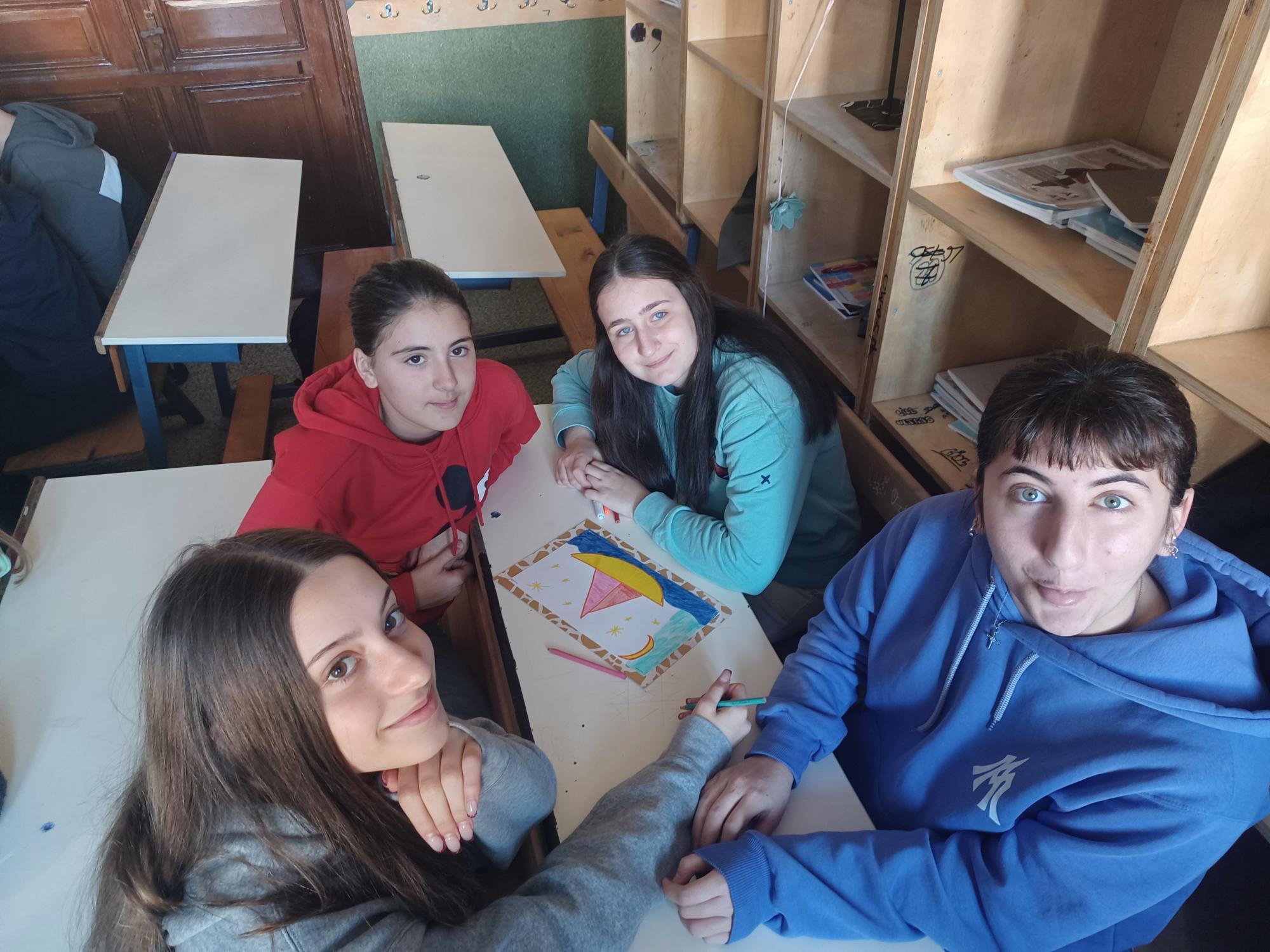
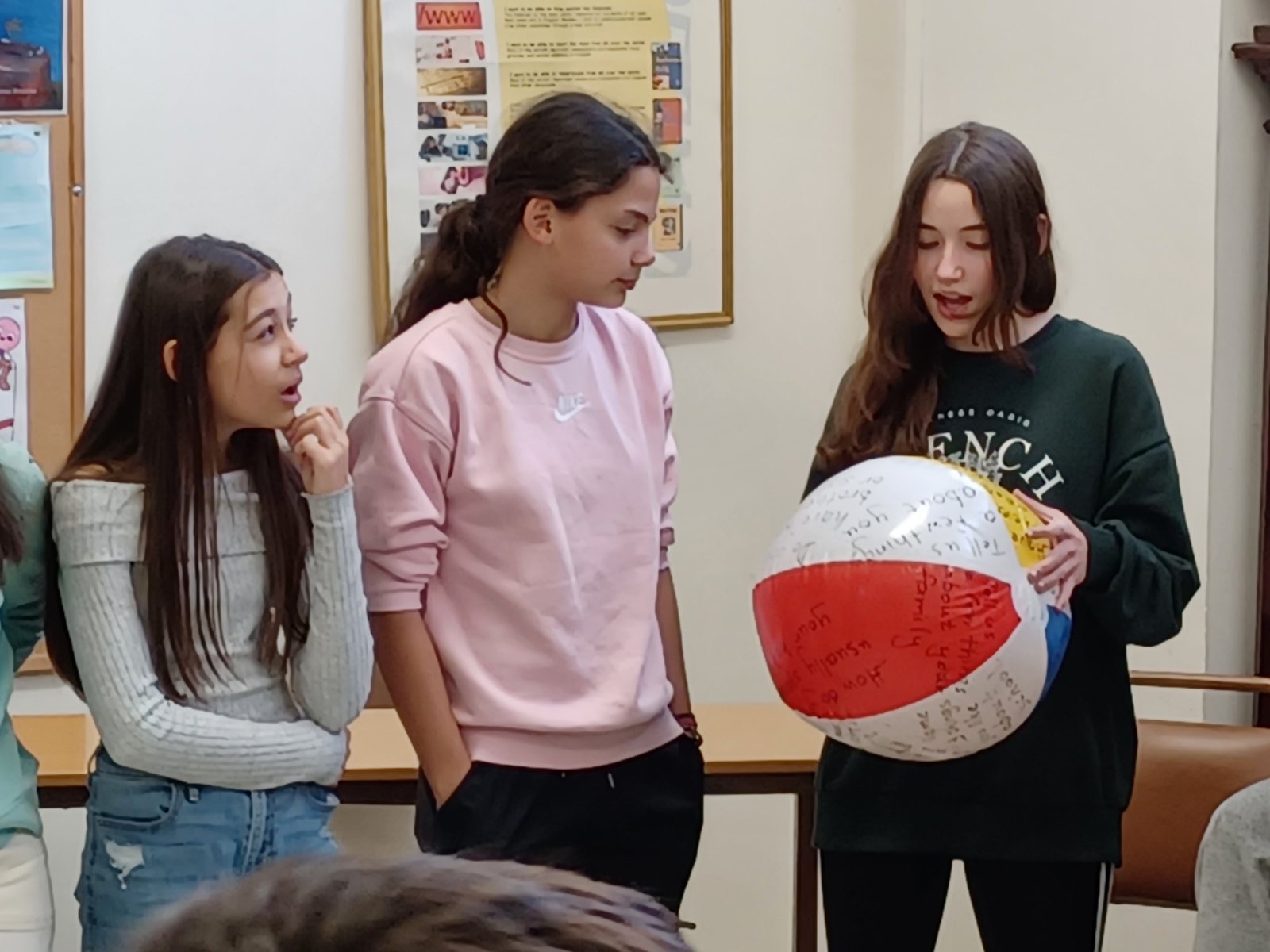
Each day, the specially adapted programme for the Spanish guests and the Greek students included attending various subjects in all three classes of the school. In Maths, the children played a puzzle game in English, divided into groups, collaborated and communicated with each other, learning each other’s language. With the museum kit ‘The Language Traveller’ they followed the historical development of writing, used writing materials and instruments, such as metal and wooden pens, chalk and quill pens, and wrote on ceramic plates, clay, paper and slate. At the same time, in the book with the sample papers, they felt various types of papyrus, parchment and handmade papers, and thanks to the folder with data for the Braille system they wrote their name. They travelled through space and time with writing as a vehicle!
In the context of Medieval History they studied the Battle of Lepanto, a crucial conflict between the united Western powers (Holy League) and the unified fleet of the Ottoman Empire that stopped the advance of the Ottoman Turks to the West. In a second Medieval History course they studied monumental architecture and specifically the buildings of Hagia Sophia in Istanbul and Seville Cathedral in Spain, with the aim of identifying and discussing the similarities and differences between the two buildings, linking the fact that Seville Cathedral, when completed in the 16th century, replaced Hagia Sophia as the largest Christian church, a title the Byzantine church held for almost a thousand years.
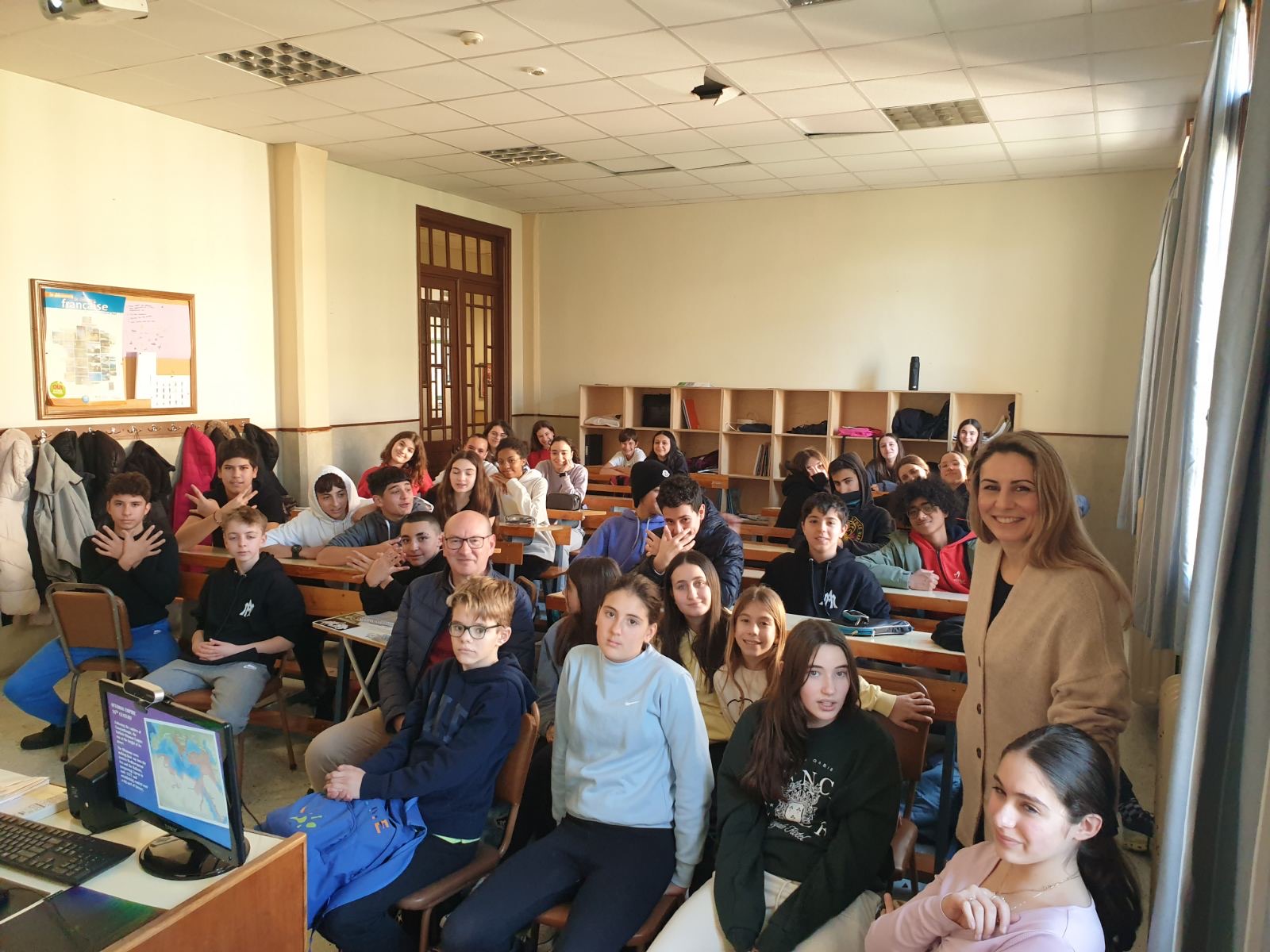
In the interactive French classes/level A2, they pronounced and recognised common French and Spanish words and expressions and, through visual material and games on the ‘wordwall’ platform, discovered the richness of these Romance languages, but also dealt with the demanding grammar of French.
In English classes at various levels, after a question and answer session and an ‘All-about-me’ activity, improvisation activities on contemporary issues, they attended an online event on ‘AI and the future of work’ by ‘The Economist Foundation’, with talks on the various aspects of Artificial Intelligence and its impact on our lives. They also participated in social and cognitive skills training activities, with the aim of producing and achieving oral communication, using visual stimuli (story cubes) and then with creative processing of unfinished painting stencils (‘Finish the painting’ activity). Extremely demanding was the video lesson based on the 5-minute TED-ed films, about the chemical elements that make up our brain, the nomenclature, but also how the brain can function better through proper nutrition.
The didactic scenario ‘Jesus Christ: the only teacher – what does he want to tell us?’ brought the children in contact with Christ’s teaching through examples from the Bible, but also contemporary ones, seen mainly through everyday situations and in a way that promotes their critical thinking, stimulates their receptivity to divine experience and cultivates their creativity. The aim was for the students to recognise through the biblical narratives and, in particular, the ‘Our Father’, the various examples through which God’s relationship with man is revealed and to acquire skills, such as cultivating positive attitudes towards the possibility of personal encounter with their spiritual and social dimension. The presence of students from different ethnic backgrounds highlighted the universality and universal appeal of biblical meanings.
Finally, as part of the Informatics course, they worked on projects with ‘Lego WeDo 2’ and ‘Scratch’, divided into groups, they created, programmed and played with their constructions, enhancing technological skills and promoting intercultural dialogue.
In between the busy attendance schedule and the hours of teamwork in our school library, the Greek and Spanish students participated in fitness and empowerment classes, so that everyone could rest and relax!
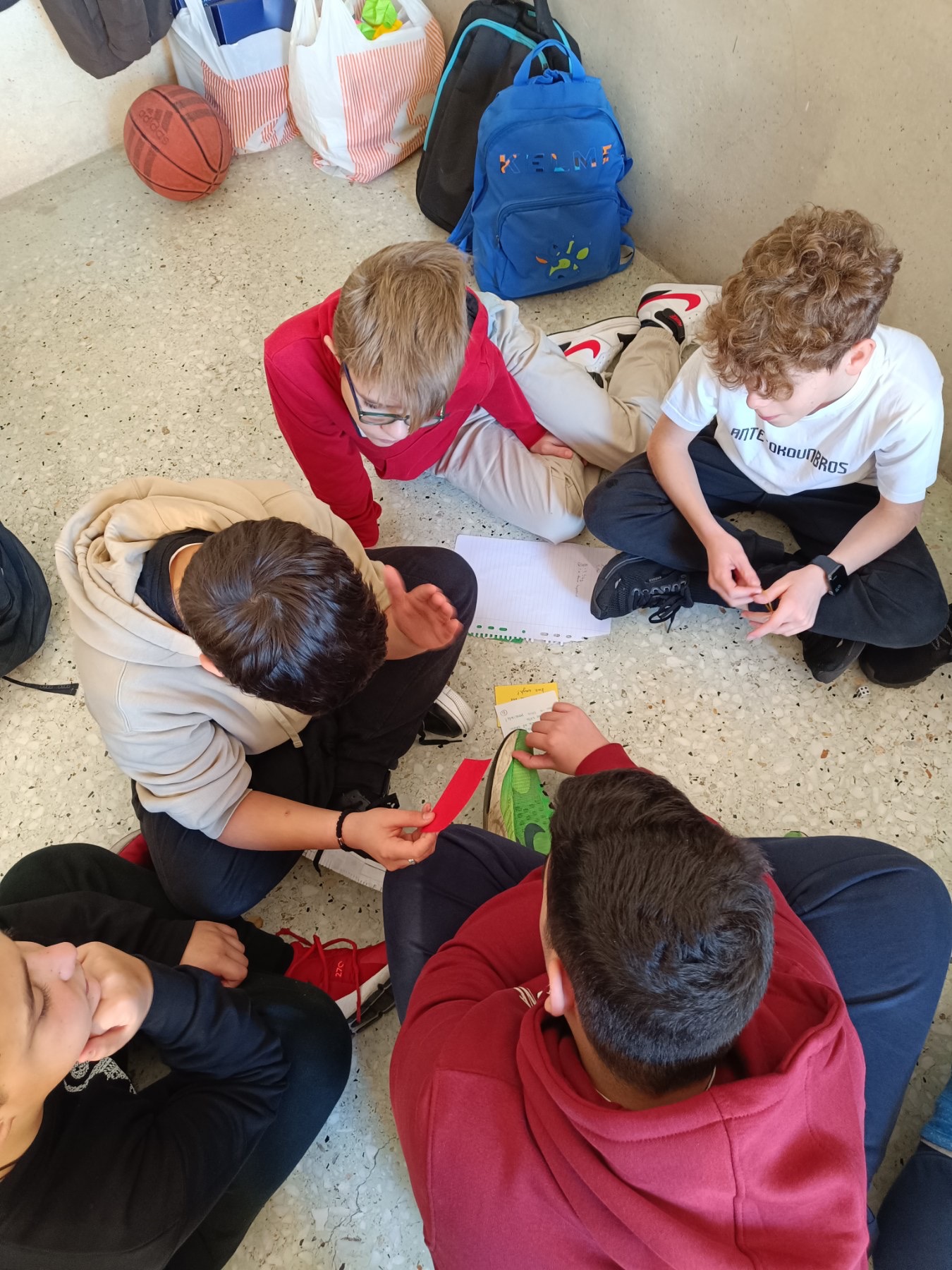
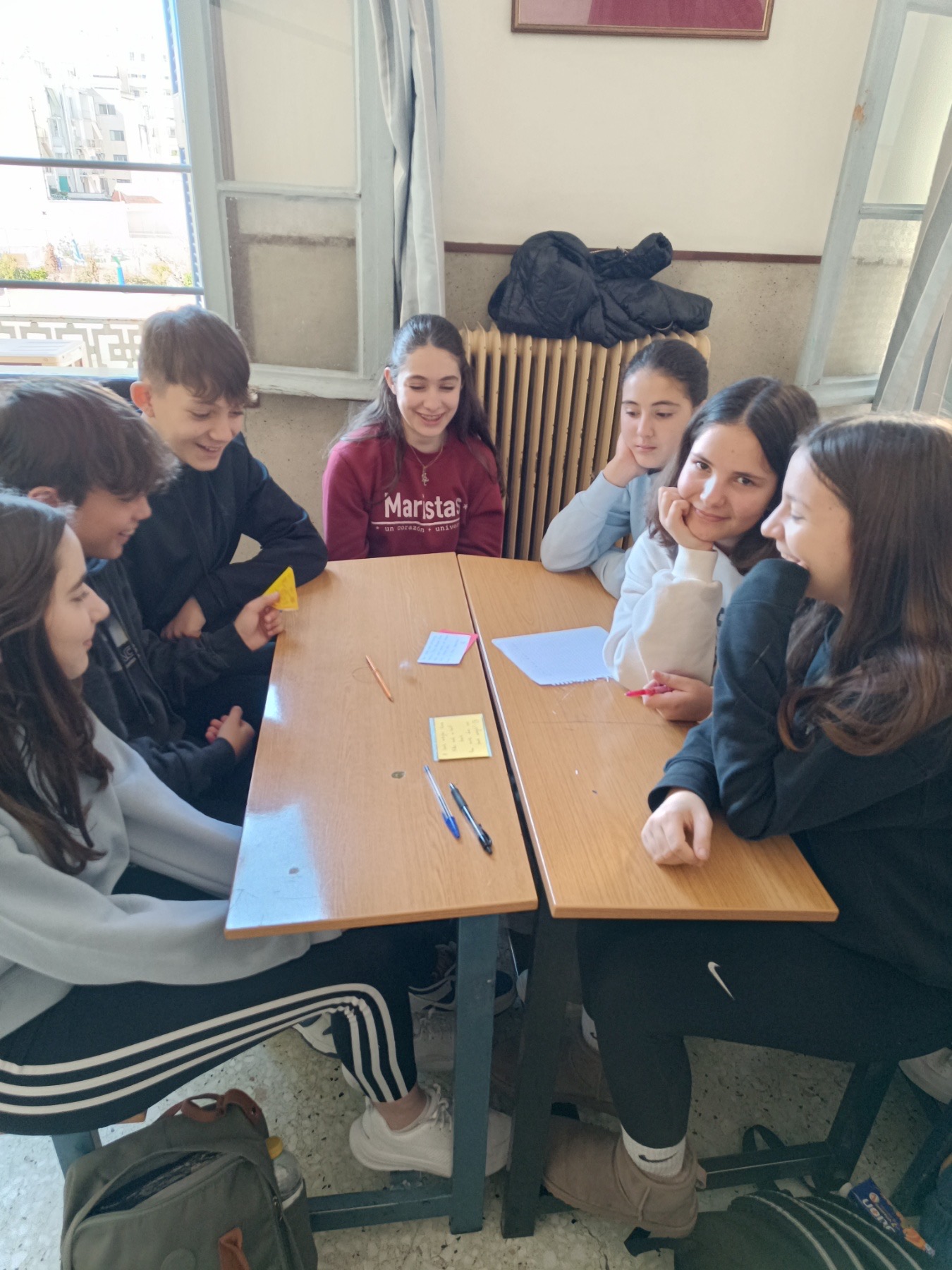
It has been an excellent experience for both parties, which we hope to repeat!
In addition, within another Erasmus Plus project, long-term mobility for students, the Marist school of Jaén is sending two students from 4th ESO to the Leonteios school in Athens to study during the whole month of April. The European programme subsidises the trip and the cost of the stay in Athenian host families. The two Andalusian students will attend B1 level English, A1 level French, Physical Education and Catholic Religion classes. In addition, they will continue to work in the library for the rest of the homework hours of the subjects of their Spanish curriculum.
Amalia Skoura – Headmistress of Leonteios School (Athens, Greece)
